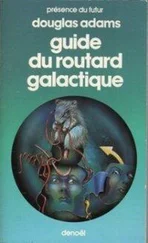Douglas Adams - Last chance to see
Здесь есть возможность читать онлайн «Douglas Adams - Last chance to see» весь текст электронной книги совершенно бесплатно (целиком полную версию без сокращений). В некоторых случаях можно слушать аудио, скачать через торрент в формате fb2 и присутствует краткое содержание. Жанр: Фантастика и фэнтези, на английском языке. Описание произведения, (предисловие) а так же отзывы посетителей доступны на портале библиотеки ЛибКат.
- Название:Last chance to see
- Автор:
- Жанр:
- Год:неизвестен
- ISBN:нет данных
- Рейтинг книги:5 / 5. Голосов: 1
-
Избранное:Добавить в избранное
- Отзывы:
-
Ваша оценка:
- 100
- 1
- 2
- 3
- 4
- 5
Last chance to see: краткое содержание, описание и аннотация
Предлагаем к чтению аннотацию, описание, краткое содержание или предисловие (зависит от того, что написал сам автор книги «Last chance to see»). Если вы не нашли необходимую информацию о книге — напишите в комментариях, мы постараемся отыскать её.
Last chance to see — читать онлайн бесплатно полную книгу (весь текст) целиком
Ниже представлен текст книги, разбитый по страницам. Система сохранения места последней прочитанной страницы, позволяет с удобством читать онлайн бесплатно книгу «Last chance to see», без необходимости каждый раз заново искать на чём Вы остановились. Поставьте закладку, и сможете в любой момент перейти на страницу, на которой закончили чтение.
Интервал:
Закладка:
Duly hushed, we went up to them. Mark was making quiet groaning noises in the back of his throat.
The bird was very quiet and quite still. It didn't appear to be alarmed, but then neither did it appear to be particularly aware of what was happening. The gaze of its large black expressionless eye was fixed somewhere in the middle distance. It was holding, lightly but firmly in its bill, the forefinger of Arab's right hand, down which a trickle of blood was flowing, and this seemed to have a calming effect on the bird. Gently, Arab tried to remove it, but the kakapo liked it, and eventually Arab let it stay there. A little more blood flowed down Arab's hand, mingling with the rain water with which everything was sodden.
To my right, Mark was murmuring about what an honour it would be to be bitten by a kakapo, which was a point of view I could scarcely understand, but I let it pass.
We asked Arab where he'd found it.
`The dog found it,' he said. `Probably about ten yards up this hill, I'd say, under that leaning tree. And when the dog got close it broke and ran down to just here where I caught it.
`It's in good condition, though. You can tell that it's close to booming this year because of its spongy chest. That's good news. It means it's establishing itself well after being resettled.'
The kakapo shifted itself very slightly in Arab's lap, and pushed its face closer into his beard. Arab stroked its damped ruffled feathers very gently.
'It's a bit nervous,' he said. `Especially of noise probably more than anything. He looks very bedraggled because of being wet. When Boss first caught up with him he would have been in a dry roost up there and probably at the noise of the bell or the dog going too close, the bird broke out and ran down the hill, and was still going when I caught it. It's just gripping me a bit and that's all. If he wanted to put the pressure on... ' He shrugged. The kakapo clearly had a very powerful bill. It looked like a great horn-plated tin opener welded to its face.
`It's definitely not as relaxed as a lot of birds,' muttered Arab. 'A lot of birds are really relaxed when you've got them in the hand. I don't want to hold it for too long since it's wet and will get chilled through if the water penetrates to the skin. I think I'd better let it go now.'
We stood back. Carefully, Arab leant forward with the bird, whose big powerful claws stretched out and scrabbled for the ground even before it got there. At last it let go of Arab's finger, steadied its weight on the ground, put its head down and scuttled off.
That night in the wardens' but we jubilantly polished off the remaining beers, and pored, over the records of all the kakapos that had been transferred to Codfish. Arab had made a note of the identity number of the bird, which had been fastened to its leg - 8-44263. Its name was Ralph. It had been transferred to Codfish Island from Pegasus Harbour, Stewart Island, almost exactly a year ago.
`This is excellent news,' exclaimed Ron. `This is really very, very good news indeed. If this kakapo is coming up to booming condition just a year after being relocated, it's the best indication we've had yet that the transfer programme is working. You know that we didn't want you to come here, and that we didn't want to track kakapos and risk disturbing them, but as it happens... Well, this is very useful information, and very encouraging indeed.'
A few days later, standing on top of Kakapo Castle in Fiordland we tell Don Merton that we think we've been forgiven.
`Oh yes, I think so,' he says. `You may have bumbled around a bit and trodden on a few toes, but you've actually stirred things up a bit as well. The press conference was very effective, and from what I hear there's an imminent decision coming from quite high up to move the kakapo conservation programme to the top of the Department's priority list, which should mean that we get allocated more resources. I just hope it's not all too late.
`There are now twenty-five kakapos on Codfish, but only five of those are females, and that's the crucial point. There's only one kakapo that we know of left on Stewart Island, and that's a male. We keep searching for more females, but we doubt if there are any more. Add those to the fourteen birds on Little Barrier and we have a total of only forty kakapos left altogether.
`And it's so difficult getting the blighters to breed. In the past they bred very slowly because there was nothing else to keep their population stable. If an animal population rises so fast that it outgrows the capacity of its habitat to feed and sustain it then it plunges right back down again, then back up, back down and so on. If a population fluctuates too wildly it doesn't take much of a disaster to tip the species over the edge into extinction. So all the kakapo's peculiar mating habits are just a survival technique as much as anything else. But only because there was no outside competition. Now that they are surrounded by predators there's very little to keep them alive, other than our direct intervention. As long as we can sustain it.'
This reminds me of my motorbike industry analogy, which I have tactfully kept to myself. There are remedies available to motorbike engineers that zoologists do not have. As we tread our way carefully back along the ridge to the helicopter I ask Don what he feels the long term prospects for the kakapos really are, and his answer is surprisingly apposite.
'Well,' he says in his quiet polite voice, `anything's possible, and with genetic engineering, who knows. If we can keep them going during our lifespan, it's over to the next generation with its new range of tools and techniques and science to take it from there. All we can do is perpetuate them during our lifetime and try to hand them on in as good a condition as possible to the next generation and hope like heck that they feel the same way about them as we do.'
A few minutes later our helicopter rises up above Kakapo Castle, puts its nose down and heads back up the valleys to Milford Sound, leaving behind a small scratched depression in the earth and a single, elderly untouched sweet potato.
Blind Panic
Assumptions are the things you don't know you're making, which is why it is so disorienting the first time you take the plug out of a wash basin in Australia and see the water spiralling down the hole the other way round. The very laws of physics are telling you how far you are from home.
In New Zealand even the telephone dials are numbered anticlockwise. This has nothing to do with the laws of physics - they just do it differently there. The shock is that it had never occurred to you that there was any other way of doing it. In fact you had never even thought about it at all, and suddenly here it is - different. The ground slips.
Dialling in New Zealand takes quite a bit of concentration because every digit is where you least expect to find it. Try and do it quickly and you will inevitably misdial because your automatic habit jumps in and takes over before you have a chance to stop it. The habit of telephone dials is so deep that it has become an assumption, and you don't even know you're making it.
China is in the northern hemisphere, so its wash basins drain clockwise, like ours. Their telephone dials are numbered like ours. Both those things are familiar. But every single other thing is different, and the assumptions that you don't know you're making will only get you into trouble and confusion.
I had a kind of inkling that this would be the case from what little I knew of other people's experiences in China. I sat in the plane on the long flight to Beijing trying to unravel my habits, to unthink as it were, and feeling slightly twitchy about it.
I started buying copious quantities of aftershave. Each time the duty-free trolley came round I bought a bottle. I had never done anything like it before in my life. My normal, instinctive reaction had always been just to shake my head and carry on reading my magazine. This time I thought it would be more Zen-like to say, `Yes, all right. What have you got?' I was not the only person I caught by surprise.
Читать дальшеИнтервал:
Закладка:
Похожие книги на «Last chance to see»
Представляем Вашему вниманию похожие книги на «Last chance to see» списком для выбора. Мы отобрали схожую по названию и смыслу литературу в надежде предоставить читателям больше вариантов отыскать новые, интересные, ещё непрочитанные произведения.
Обсуждение, отзывы о книге «Last chance to see» и просто собственные мнения читателей. Оставьте ваши комментарии, напишите, что Вы думаете о произведении, его смысле или главных героях. Укажите что конкретно понравилось, а что нет, и почему Вы так считаете.







